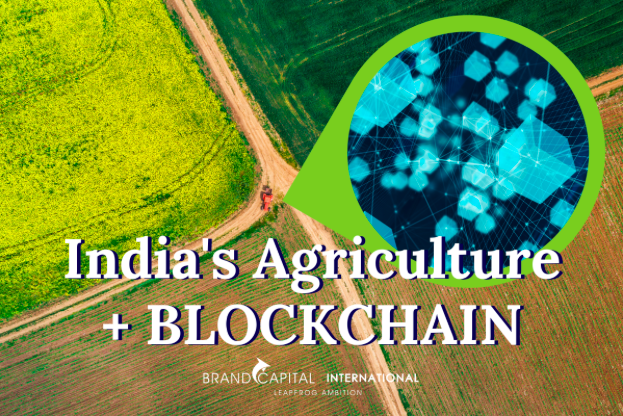
When I hear the term, “blockchain technology,” the first thing that comes to mind is cryptocurrency -- a digital and decentralized process of conducting financial transactions. However, blockchain technology offers much more than just its fiscal benefits.
Blockchain technology can be used across distinct and traditional industries. It’s cloud-based ledger stores detailed records and transactions known as “blocks,” that are not only immutable, but tamper proof -- making it harder to hack.
While it’s no secret that India is opposed to the use of cryptocurrency, Indian startups are using blockchain technology to find a solution to one of India’s biggest problems-- the agricultural industry, and its effect on their farmers.
India’s agricultural industry is the 7th largest agricultural food exporter worldwide and accounts for 7.68% percent of total global agricultural output. Within India, it sustains 60% of India’s population and contributes 13.7% to its GDP. Nonetheless, this industry continues to leave Indian farmers in financial havoc.
Within the last three decades, there has been a drastic increase in debt -- leading to starvation, and continued poverty.
Since 1993, the percentage of farmer households in debt has increased by more than 12 percentage points, leaving 52.5% of all agricultural households indebted with an average debt of $1,470 according to a 2018 study by the National Bank of Agriculture and Rural Development. A large factor of crippling debt stems from farmers borrowing from informal money lenders -- also known as “middlemen.”
In theory, farmers, unlike other occupations, receive their income seasonally. Therefore, farmers are accustomed to borrowing money from banks for supplies at the beginning of the season and pay back these costs at the end of harvest.
While Indian farmers are borrowing money from banks during the beginning of the season, they fall to money lenders between planting and harvesting season to get by, as farmers are able to use their word as bond and get cash quickly. Unfortunately, interest rates are often over 50%, resulting in farmers playing a huge price for convenience. Additionally, this borrowing carries on from generations and rolls over even after the farmer in debt dies, creating a cycle of an increasing amount of debt and generational poverty.
Luckily, blockchain is eliminating this cycle.
With the use of blockchain, farmers are able to share information including, seed quality, moisture, climate & environment data, payments, and demand & sell price all in one decentralized platform. More importantly, farmers can eliminate intermediaries, and give agency and equal opportunity back to Indian farmers. And luckily, this technology has already enabled Indian startups to ensure farmers are making well-informed decisions.
KHETHINEXT, a Indian mobile-based agricultural solutions provider, gives Indian farmers with mobile phones expert advisory services, ground support for logistics, blockchain-based clarity into financial transactions, and supply chain monitoring. Presently, KHETHINEXT is helping 4.9 lakh Indian farmers connect with potential retailers and produce organizations to increase transparency, traceability, and efficiency.
Agri10x, another block-chain powered startup utilizes their technology to increase the income of farmers across the country by creating a transparent ecosystem during post-harvest season -- specifically making sure farmers a receive a fair price and get paid on time before crops are moved to production. This way, farmers can directly trade with buyers and gain their autonomy back from middlemen.
Stay updated on our news and events! Sign up to receive our newsletter.